Markus Tiersch
Active learning machine learns to create new quantum experiments
Feb 08, 2018


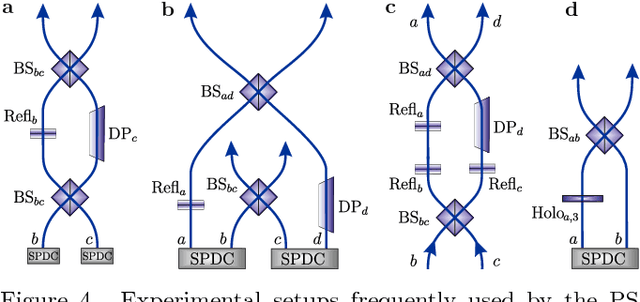
Abstract:How useful can machine learning be in a quantum laboratory? Here we raise the question of the potential of intelligent machines in the context of scientific research. A major motivation for the present work is the unknown reachability of various entanglement classes in quantum experiments. We investigate this question by using the projective simulation model, a physics-oriented approach to artificial intelligence. In our approach, the projective simulation system is challenged to design complex photonic quantum experiments that produce high-dimensional entangled multiphoton states, which are of high interest in modern quantum experiments. The artificial intelligence system learns to create a variety of entangled states, and improves the efficiency of their realization. In the process, the system autonomously (re)discovers experimental techniques which are only now becoming standard in modern quantum optical experiments - a trait which was not explicitly demanded from the system but emerged through the process of learning. Such features highlight the possibility that machines could have a significantly more creative role in future research.
* 11 pages, 6 figures, 1 table; A. A. Melnikov and H. Poulsen Nautrup contributed equally to this work
Projective simulation for classical learning agents: a comprehensive investigation
Dec 01, 2014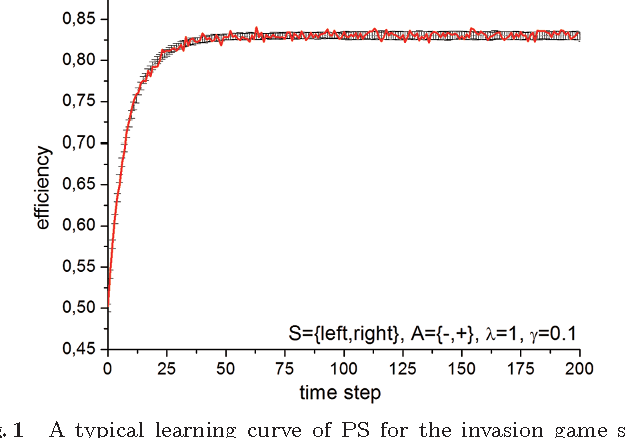
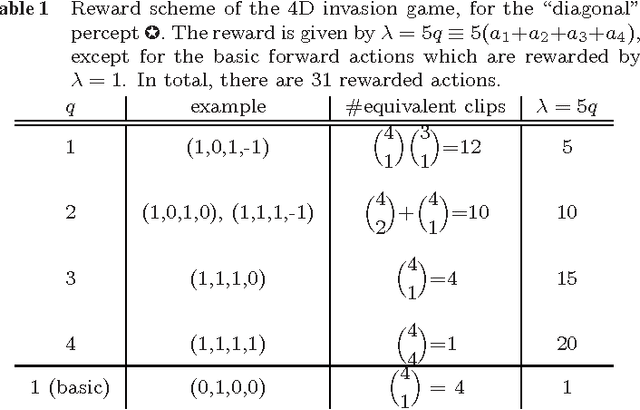
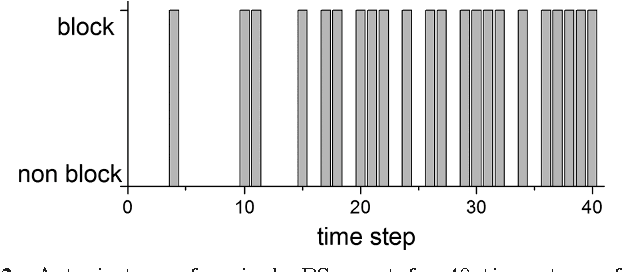
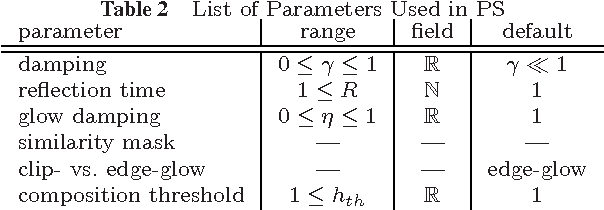
Abstract:We study the model of projective simulation (PS), a novel approach to artificial intelligence based on stochastic processing of episodic memory which was recently introduced [H.J. Briegel and G. De las Cuevas. Sci. Rep. 2, 400, (2012)]. Here we provide a detailed analysis of the model and examine its performance, including its achievable efficiency, its learning times and the way both properties scale with the problems' dimension. In addition, we situate the PS agent in different learning scenarios, and study its learning abilities. A variety of new scenarios are being considered, thereby demonstrating the model's flexibility. Furthermore, to put the PS scheme in context, we compare its performance with those of Q-learning and learning classifier systems, two popular models in the field of reinforcement learning. It is shown that PS is a competitive artificial intelligence model of unique properties and strengths.
* Accepted for publication in New Generation Computing. 23 pages, 23 figures
 Add to Chrome
Add to Chrome Add to Firefox
Add to Firefox Add to Edge
Add to Edge